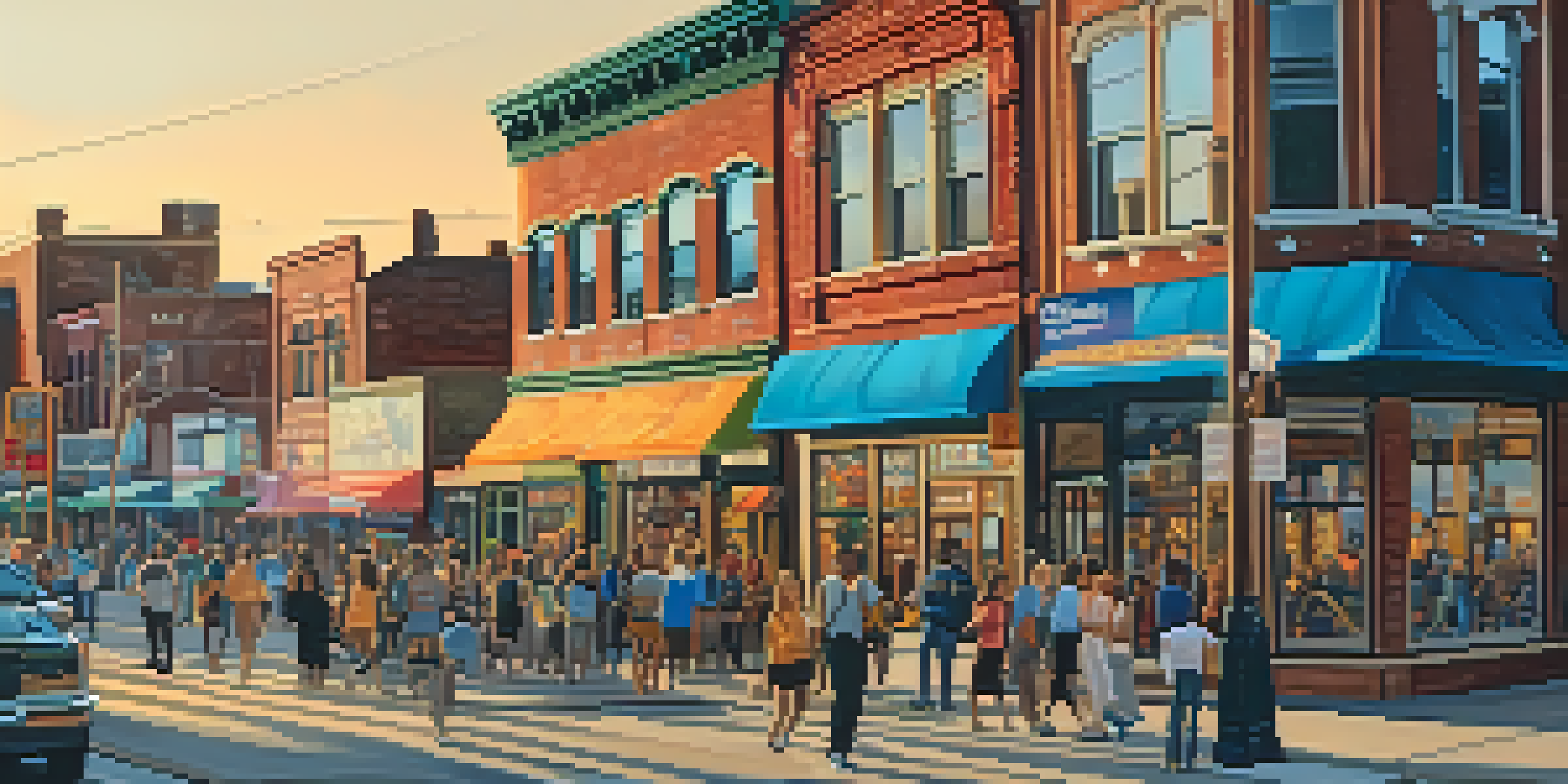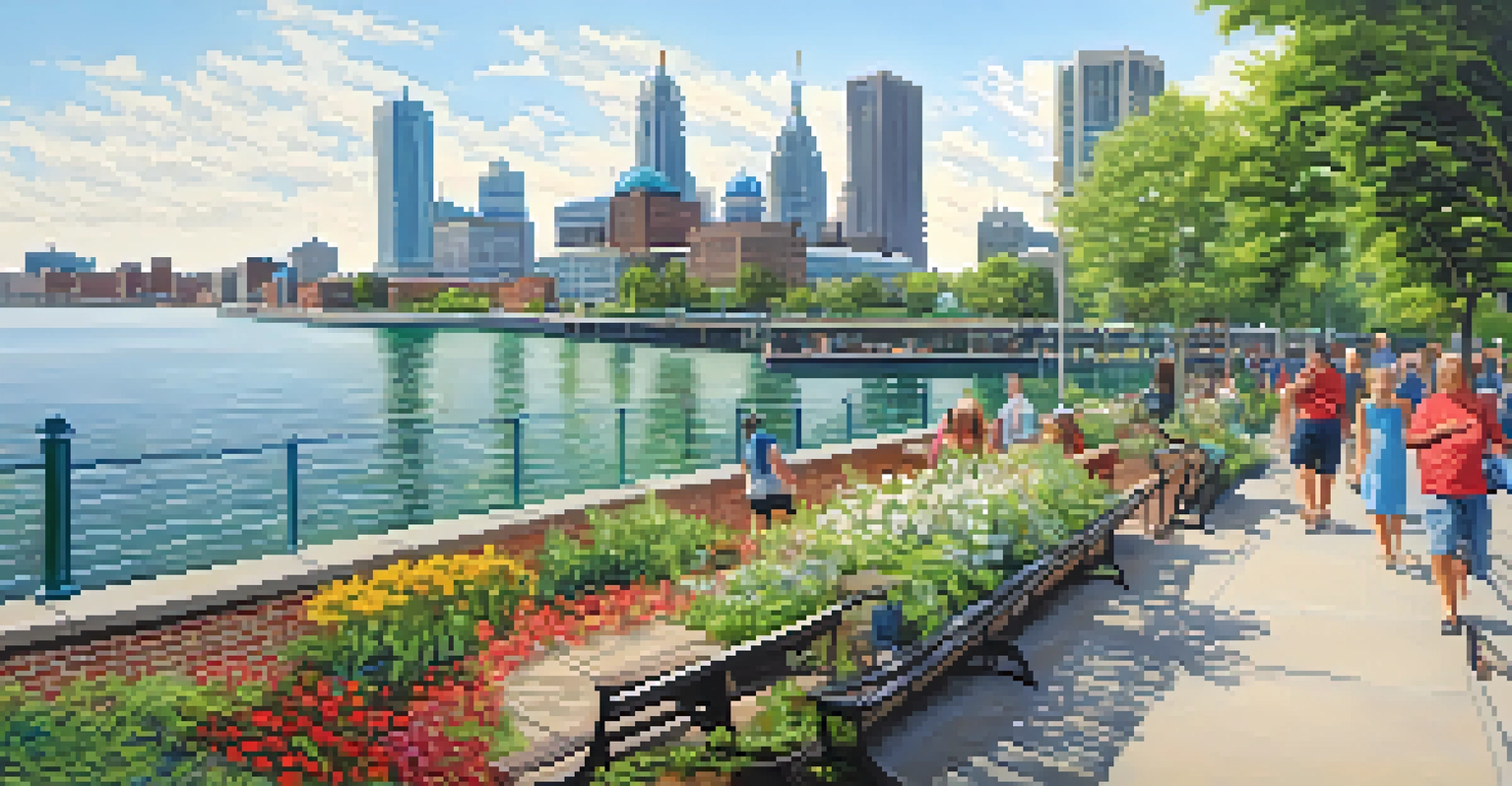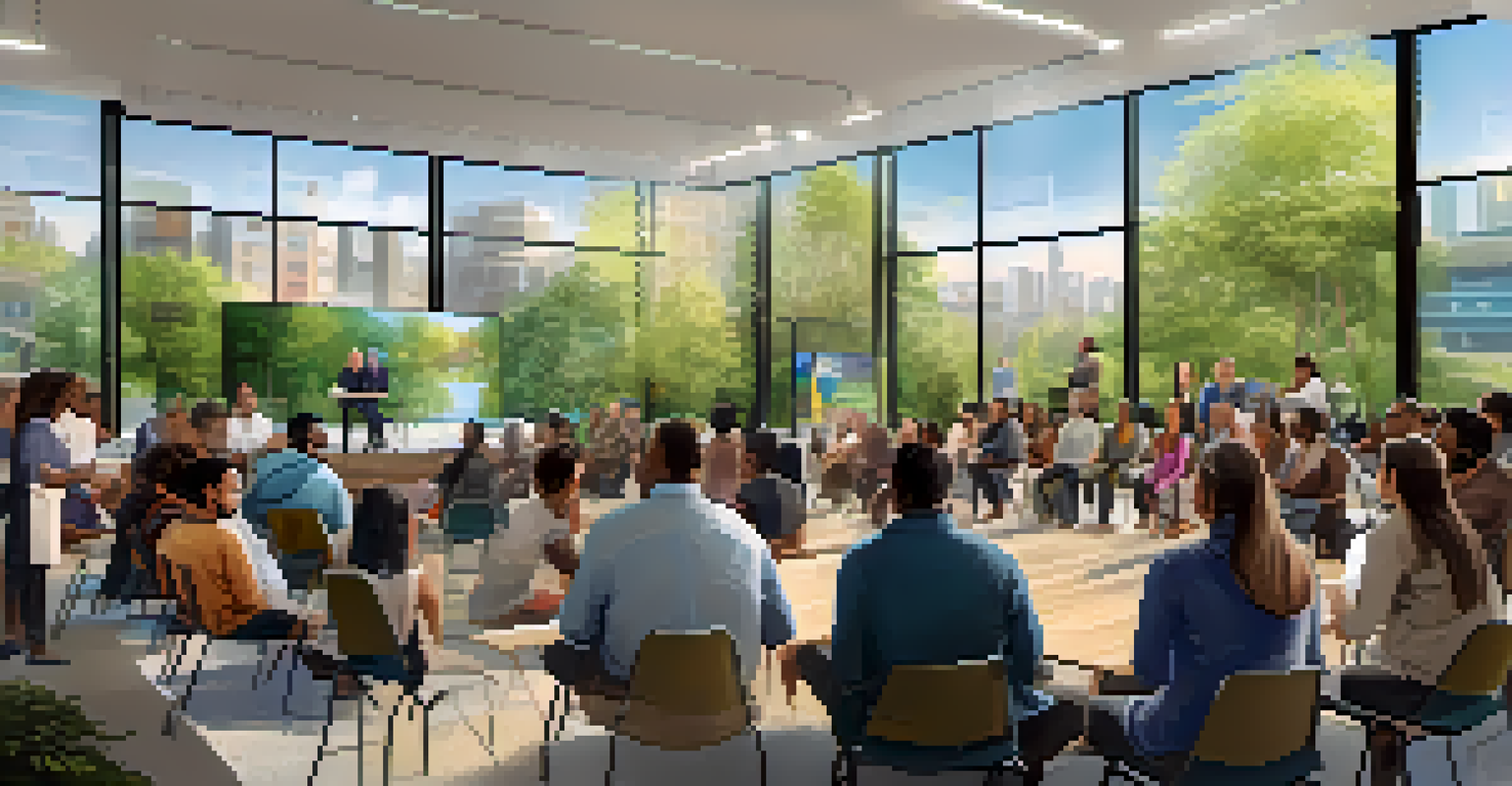The Impact of Urban Development on Detroit's Local Economy

Understanding Detroit's Urban Development History
Detroit has a rich history of urban development, marked by both triumphs and challenges. From its booming automotive industry in the early 20th century to the decline in manufacturing jobs, the city's landscape has continually evolved. This history provides a backdrop to understanding current urban initiatives aimed at revitalizing the economy.
Detroit is a city that has experienced the highs of prosperity and the lows of decline, but its spirit of resilience continues to shine through.
In recent years, various projects have emerged, focusing on transforming abandoned spaces into vibrant community hubs. For example, the redevelopment of the historic Michigan Central Station symbolizes hope and a new chapter for Detroit. These changes reflect the city’s resilience and its commitment to a bright economic future.
As we explore the impact of urban development on Detroit's local economy, it's essential to recognize the ongoing efforts to balance historical preservation with modern growth. This blend of past and present shapes the city's identity and influences its economic trajectory.
Key Urban Development Projects in Detroit
Several key projects have played a pivotal role in reshaping Detroit’s urban landscape. The Detroit Riverwalk, for instance, has transformed the waterfront into a public space that attracts both residents and tourists alike. This development not only enhances the city's aesthetics but also stimulates local businesses along the route.

Another notable initiative is the revitalization of the Corktown neighborhood, which has seen an influx of new restaurants, shops, and residential spaces. This area, once overlooked, is now bustling with activity, contributing to the local economy and drawing in new residents. It serves as a prime example of how targeted development can breathe new life into forgotten neighborhoods.
Revitalization Efforts in Detroit
Detroit's urban development showcases projects that transform abandoned spaces into vibrant community hubs, reflecting resilience and economic hope.
These projects exemplify the potential of urban development to create jobs, boost local businesses, and enhance the quality of life for Detroit's residents. As more initiatives take shape, they lay the groundwork for a more vibrant and economically viable city.
The Role of Community Engagement in Development
Community engagement has become a cornerstone of successful urban development in Detroit. Local residents are increasingly involved in decision-making processes, ensuring that their needs and desires are heard. This participatory approach fosters a sense of ownership and pride among community members.
Community engagement is not just a step in the process; it is the foundation for successful urban development.
For instance, town hall meetings and workshops provide platforms for residents to voice their opinions on proposed projects. By incorporating feedback from the community, developers can create spaces that truly reflect the city's culture and values. This not only enhances the end product but also builds trust between developers and residents.
When communities feel invested in their neighborhoods, the impact of development is amplified. Engaged residents are more likely to support local businesses, participate in community events, and contribute to a thriving local economy.
Urban Development's Impact on Job Creation
One of the most significant impacts of urban development on Detroit's economy is job creation. New projects often require a diverse workforce, leading to numerous employment opportunities in construction, design, and management. This influx of jobs can significantly reduce unemployment rates and foster economic stability.
For example, the construction of new residential complexes and commercial spaces creates demand for skilled labor. Local training programs are often established to equip residents with the necessary skills, further enhancing the community's economic prospects. This cycle of job creation and skill development helps lift families out of poverty.
Community Engagement Matters
Involving local residents in urban development fosters ownership and pride, ensuring that projects align with the community's culture and needs.
Moreover, as businesses flourish in newly developed areas, additional jobs are created in sectors such as retail, hospitality, and service industries. This ripple effect underscores the vital connection between urban development and a robust local economy.
Challenges Facing Urban Development in Detroit
Despite the positive impacts, urban development in Detroit faces several challenges. One major issue is gentrification, where rising property values can displace long-time residents. This phenomenon can lead to tensions between newcomers and established community members, complicating the development landscape.
Additionally, securing funding for large-scale projects can be a daunting task. Many developers rely on public-private partnerships, which can be complex and time-consuming to navigate. The need for transparency and accountability in these processes is paramount to ensure that developments benefit the community as a whole.
Addressing these challenges requires a collaborative approach that prioritizes inclusivity and sustainability. By fostering dialogue between stakeholders, developers can create solutions that honor the city’s heritage while paving the way for future growth.
The Influence of Technology on Urban Development
Technology is reshaping urban development in Detroit, driving innovation in planning and construction. Smart city initiatives, which leverage data and technology, are being implemented to improve infrastructure and services. For instance, integrating smart traffic systems can enhance mobility and reduce congestion in busy areas.
Moreover, technology facilitates better communication between developers and the community. Digital platforms allow residents to stay informed about upcoming projects and provide feedback in real-time. This transparency can foster a more collaborative relationship between all parties involved.
Job Creation Through Development
Urban development in Detroit leads to job creation across various sectors, enhancing economic stability and reducing unemployment rates.
As technology continues to advance, it holds the potential to create more sustainable and efficient urban environments. Embracing these innovations will be crucial for Detroit as it strives to build a modern economy that meets the needs of its residents.
The Future of Urban Development in Detroit
Looking ahead, the future of urban development in Detroit appears promising yet challenging. With ongoing investments in infrastructure and community engagement, the city is poised for continued growth and revitalization. However, maintaining a balance between development and community needs will be critical.
As more businesses and residents are drawn to the city, urban planners must prioritize sustainable practices that benefit both the economy and the environment. This includes focusing on green spaces, energy-efficient buildings, and public transportation options.

Ultimately, the trajectory of urban development will significantly influence Detroit's local economy. By fostering an inclusive approach that considers the diverse voices within the community, the city can create a vibrant and prosperous future for all its residents.